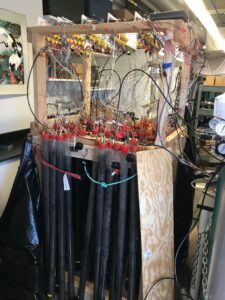Iowa State University research shows trade-off between carbon and nitrogen in varied crop rotations
January 31st, 2025 by Ric Hanson
(Ames, Iowa) – A new study from Iowa State University researchers found that diversifying crop rotations does not aid in carbon sequestration but is beneficial in lowering the need for synthetic fertilizers, which has positive environmental impacts of its own. The Iowa Capital Dispatch says Wenjuan Huang, study co-author and ISU assistant professor of ecology, evolution and organismal biology, reports the team used new methods of measuring carbon in the soil to come to its conclusion. “Even though the study shows no significant difference in carbon sequestration,” Huang said, “diversified crop systems still help improve soil health and reduce the need for our synthetic fertilizer, probably leading to reduced greenhouse gas emissions, especially the nitrous oxide.”
Utilizing soil samples from the university’s Marsden Farm, Huang said the team compared soil samples from a two-year, corn-soybean crop rotation and a three- or four-year rotation that added alfalfa, clover or oats to the corn and soybean crops, as well as manure instead of synthetic fertilizer, to see how they differ. She says the farm has been running the different crop rotations experiment for more than 20 years. More carbon enters the soil when crops are diversified, as different roots, plant matter and manure is added to it, and Huang said the team was able to see which crops left which types of carbon isotopes in both topsoil and samples taken a few feet into the ground.
The team used a new method in its research, Huang said, by looking at isotopes in the soil samples and trying to “chase carbon change.” She described it as finding out what the soil microbes ate for dinner, and from what plants. Huang said the team found no differences between the carbon stock of the two crop rotation soil samples, due to increased carbon decomposition in the diversified rotation. However, researchers did identify a “critical trade-off” between carbon and nitrogen, Huang said. “Because increased carbon decomposition releases more nitrogen,” she said, “this helps the crops grow, and more importantly, it also reduces the use of a synthetic nitrogen fertilizer.”

Iowa State University researchers found that diversifying crop rotations doesn’t impact carbon sequestration but does aid in decreasing the use of synthetic fertilizers. (Photo courtesy of Iowa State University)
While carbon sequestration is important, Huang said people shouldn’t ignore other greenhouse gases impacted by different crop practices, like nitrous oxide emissions. With more nitrogen available in the soil for crops, Huang said emissions can be reduced by lessening the need for synthetic fertilizers that contribute to nitrous oxide emissions. Both the findings and methods of study will provide tools for others involved in agricultural research and the industry in general, Huang said. Utilizing the carbon isotope method will provide more accurate information on the carbon’s source, helping to better predict carbon change.
Huang and other researchers’ work will also help inform people on what else they need to focus on when it comes to diversifying crops and trying to lessen agricultural environmental impacts, one subject being nitrogen and the nitrous oxide produced through it.




